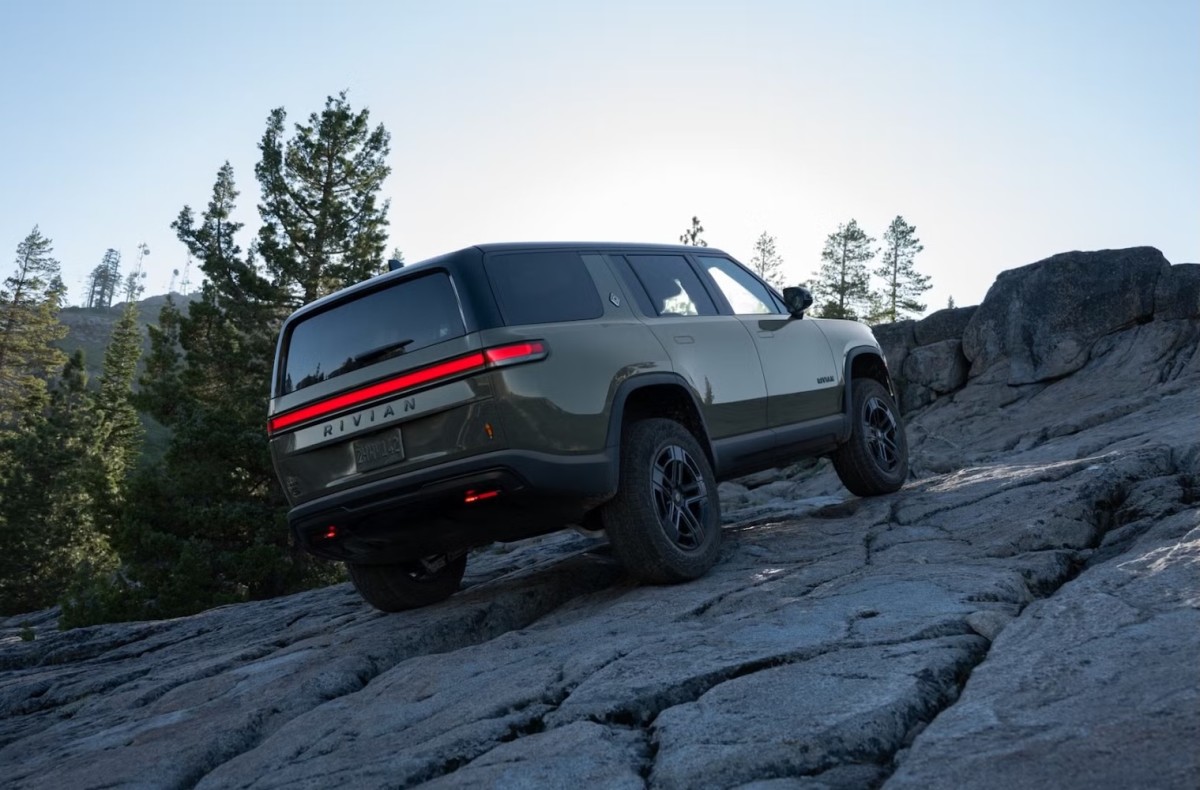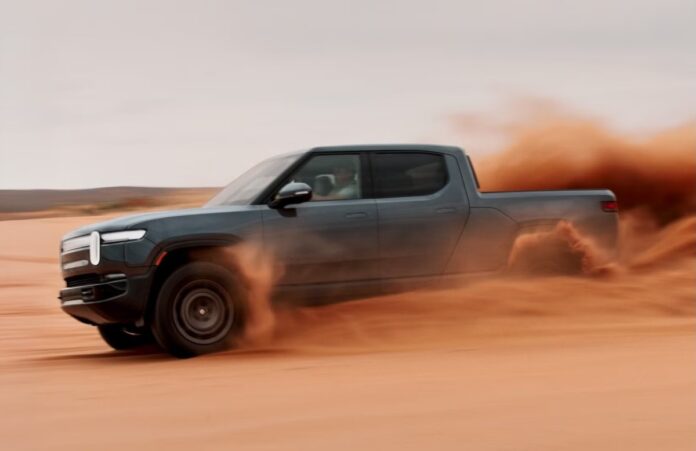Software Fix Has Been Released
Rivian is recalling 24,214 of its R1S electric SUVs and R1T electric pickup trucks because a software issue could impact the operation of the Hands-Free Highway Assist system. The affected vehicles—all 2025 models with software versions prior to 2025.18.30—may not be able to track the vehicle in front when using the system, according to NHTSA recall documents.
Designed for use on limited-access highways, Hands-Free Highway Assist can control steering, acceleration, and braking in order to keep a vehicle centered in its lane and from colliding with other cars. Unless it can’t identify a car in front, in which case the system may not slow the vehicle enough to avoid a collision.
One Minor Incident
Rivian
Such a scenario is what triggered the recall. Rivian told the National Highway Traffic Safety Administration (NHTSA) that on May 14, 2025, the system “experienced a one-time functional limitation due to a misclassification” of a lead vehicle. The driver also didn’t brake, causing the 2025 Rivian R1S to collide with the other vehicle at an estimated 6 mph. The car remained drivable and there were on injuries, according to Rivian.
Following an investigation, Rivian released a software update on June 3, after which it began the formal recall reporting process to the NHTSA. Rivian estimates that 99% of the affected vehicles have already received the update, which was pushed over-the-air (OTA).
The recall population includes 4,386 R1T and 19,828 R1S models. The affected R1T models were manufactured between July 10, 2024, and May 13, 2025, while the R1S models were manufactured between April 29, 2024, and May 13, 2025. Owners who haven’t received the OTA update, or aren’t sure if they have, can call Rivian customer service at 1-888-748-4261 and ask about recall number FSAM-1744. Official recall letters will also be mailed starting November 4.
Big Plans
Rivian
The R1S and R1T both received significant updates for the 2025 model year, to the extent that Rivian considers the newest versions to be second-generation models. They may look largely the same on the outside, but numerous changes were made under the sheetmetal to improve efficiency and performance. And the company isn’t letting software-related recalls slow it down.
CEO RJ Scaringe proclaimed last month that a hands-free driving system for city streets would be available in 2026. Rivian is also working to expand its lineup with the cheaper R2 SUV, the smaller R3, and possibly additional affordable models. It’s being helped along by a $5.8 billion investment from the Volkswagen Group, which gives that automaker access to Rivian’s software and electrical architecture.
